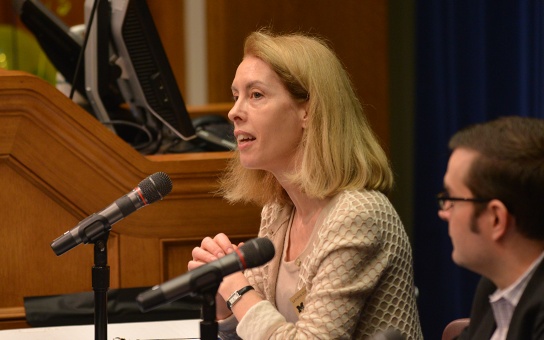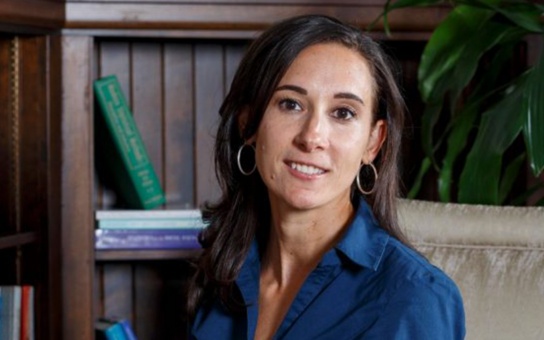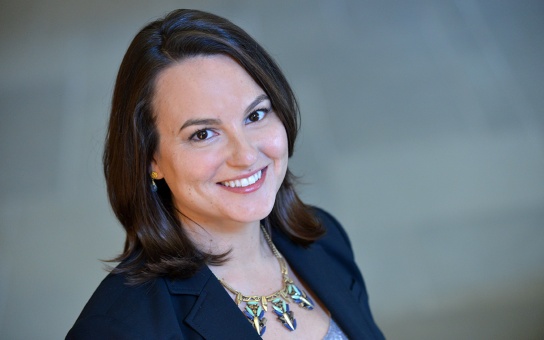
In the aftermath of the 2020 election, Ford School faculty weighed in on what happened and what’s next, including the immediate policies a Biden-Harris Administration should tackle.

Jenna Bednar
Professor of public policy and political science, Edie N. Goldenberg Endowed Director for the Michigan in Washington Program
One of the key lessons of this election is that the Democratic party remains unconnected to state and local governments and people, causing it to misunderstand the extent of support for President Trump, especially among Latino populations. The Biden Administration should actively seek to collaborate with state and local governments; it can lead to much improved policy development, sourced from a broader set of interests, and improve the connection between the federal government and the people it serves.

Kathryn Dominguez
Professor of public policy and economics
Prospects for macroeconomic recovery depend critically on successful containment of the virus.
President-Elect Biden has started work on “job one,” tackling the pandemic, with the formation of the coronavirus advisory board. The Biden administration will need to coordinate efforts across states as well as provide global leadership on the distribution of vaccines.
It will also be important for the Biden Administration to re-establish global confidence in the U.S. as a trustworthy ally by re-engaging in multilateral initiatives and organizations, including the World Health Organization, the World Trade Organization and the Paris Climate Agreement

Earl Lewis
Thomas C. Holt Distinguished University Professor of History, Afroamerican and African Studies, and Public Policy, and the founding director of the U-M Center for Social Solutions
The election excited people across the political spectrum on a level not seen in more than 100 years. While the country remains divided, millions realized that this election was about their futures. A majority favored one vision more than another. For those concerned with racial and economic justice, hopefully the Biden administration will turn to addressing the surging health pandemic, as well as the lingering effects of racism on many in this country. With many still out of work, on the policy level, I hope he turns to a long-neglected need for a massive infrastructure project, which will produce jobs and ultimately renew optimism. There is so much work to do, both domestically and globally.

Mara Ostfeld
Faculty associate, Center for Political Studies, assistant professor of political science, assistant professor of public policy (by courtesy)
Similar to past years, post-election coverage this year consisted of many stories about how various groups of voters surprisingly did not react to the “strategic” appeals for their support as expected. Many articles discussed the surprise over how many Latinos voted for Trump, how many Americans living in the rust belt voted against Biden, and how suburban white women did not shift their votes in droves based on concerns about crime and safety.
In the end, the reductionist nature of many targeted appeals has been shown to fall flat, at best, and dissuade participation, at worst. Many of these appeals simply come across as high-resolution depictions of our stereotypes.
In a democracy, candidates are not supposed to be buying voters, but selling ideas. Our collective interest in getting more clicks, more views, more answered calls and more opened mail often trumps the effort put forth by campaigns to refine and share their ideas.
Until we can truly invest into making campaigns about the substance of candidates' ideas, we will continue spending millions of dollars on ads that stoke fears, reinforce stereotypes, polarize the electorate and dissuade people from wanting to engage in politics.
Difference and disagreement is not what polarizes America. It is the perpetual reliance on essentializing notions of who people are in American politics that polarizes us. To be clear, I am not saying that demographics don’t matter. The way we are categorized is often deeply intertwined with how we are treated in society. These demographic categorizations consequently can shape a range of opportunities and life experiences that form our political views. But no person can be reduced to a single identity. And treating people as if they can be, often comes across as disingenuous and patronizing more than persuasive.

Ambassador Susan D. Page
Professor of Practice, Weiser Diplomacy Center
We cannot afford to continue thinking we can "go it alone" in today's increasingly interconnected world.
Biden needs to reinvigorate the State Department and its development arm USAID, along with other US government agencies with a foreign service corps, such as the Foreign Commercial Service of the Department of Commerce. We often praise our military for their service and for defending our freedom, and rightly so. What is praised and talked about far less often are our country's diplomats and aid workers who work long hours overseas building relationships, negotiating agreements, promoting American businesses and doing so "without boots" so that our military will not need to be called in to fight a war. Our representatives need to look more like the country that they represent. The Biden-Harris team should review the reports of the GAO and hearings on diversity efforts at both the State Department and USAID and implement the best recommendations, seeking input from its Transition Teams and other former and current career public servants. We must admit our own country's fallibility all while actively pursuing a "more perfect Union" by putting in the hard work of creating a more just and equitable society at home.
The new Administration must bring back honesty, a commitment to democratic values and renewed vigor to work together with other nations and multilateral organizations across the globe to try to help solve the problems of and reap the benefits from a more connected world. Biden, the candidate, stated that the US would rejoin the Paris Climate Change agreement and the World Health Organization. There are many more international agreements and organizations that need US attention, including the World Trade Organization, the UN Human Rights Council, expiring nuclear treaties, and the Iran nuclear deal. In re-joining international bodies and acting in concert with others in a non-punitive manner, the U.S. could begin to resume its seat at the table in world diplomacy.

Kaitlin Raimi
Assistant professor of public policy
This has been an incredibly divisive few years, and these partisan divides we’ve seen develop are not going to disappear overnight. Especially In the immediate aftermath of the election and the ongoing (and worsening) pandemic, emotions are running incredibly high. We know that strong emotions can lead people to pay less attention to the quality of information they are shown. So one thing we can all do as media consumers is to make a conscious effort to take a deep breath and think critically before turning on the news. This is especially true on social media, whose platforms and newsfeed algorithms are designed to capture attention, not convey accuracy.
One major focus for the new administration will be climate change. However, unless Democrats take the Senate with the January runoffs in Georgia, Biden is likely going to have to rely on executive orders for climate policy. This has major limitations. Public polling increasingly shows that Americans across the political spectrum are concerned about climate change, so Congressional Republicans may do well by revising their positions to address those concerns.
Below, find the full, formatted Fall 2020 edition of State & Hill.